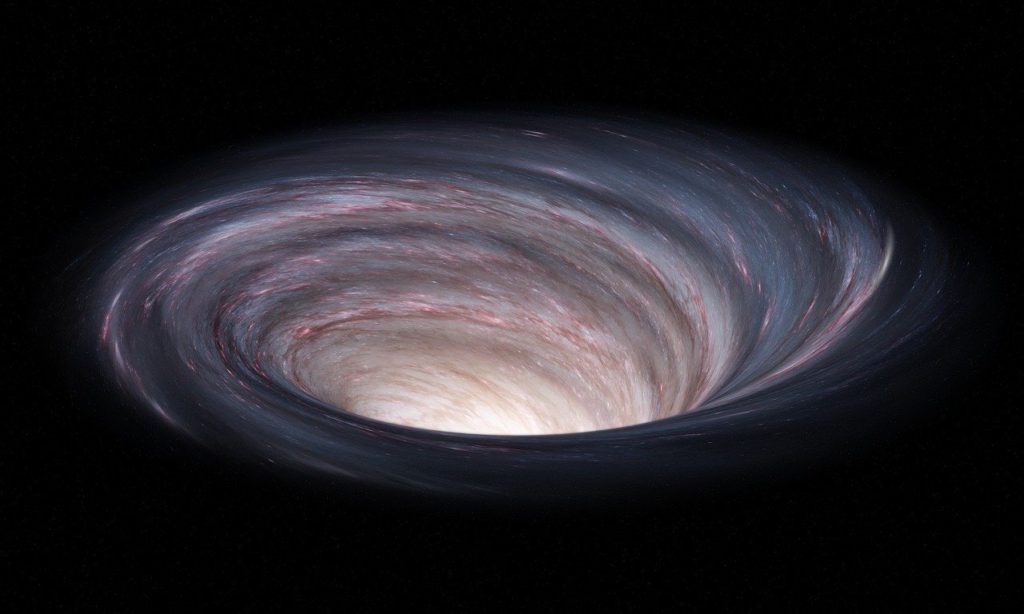Most popular articles for January 2024:
Do sci-fi writers need to know a lot about science? Do you need some kind of scientific expertise in order to write science fiction stories or novels? And just how much science needs to be in a sci-fi tale?
These are common questions among aspiring writers, and we’ll tackle all of them in this blog post. Let’s start with a definition of science fiction and go from there.
Definition of Science Fiction
Understanding the definition of sci-fi will help you decide how much science you need to have in your story. People define this genre in different ways. Below, I’ve selected a couple of definitions that do a good job explaining it.
- The Encyclopedia Britannica defines sci-fi as “a form of fiction that deals principally with the impact of actual or imagined science upon society or individuals.”
- The Oxford English Dictionary describes it as “fiction in which the setting and story feature hypothetical scientific or technological advances, the existence of alien life, space or time travel, etc., esp. such fiction set in the future, or an imagined alternative universe.”
I like the phrase “imagined science” within the first definition. Many sci-fi writers take our current understanding of science and project it into the future, into space, etc. They imagine.
These writers take what we know to be true and add elements that might be true, in some fictional yet plausible world. The plausible part is what separates science fiction from fantasy, by the way.
How Much Is Enough?
So, how much science does a sci-fi story or novel actually need? How deep do you have to dig into the scientific aspects of your story?
A general rule: When writing science fiction, the scientific component should be integral to the story. In other words, the science has to be there in order for the story to work.
If you can totally remove the science and the story still works, it’s probably not sci-fi. It might just be general fiction that happens to touch on science in some way.
Let’s use Michael Crichton’s Jurassic Park as an example. That novel meets the definition of sci-fi, because the science (of genetically engineered dinosaurs) is essential to the story. If you took that component out, the story would no longer work.
In more modern times, Andy Weir’s The Martian does a good job representing the science fiction genre. Here again, the scientific components are what make the story work. They also allow the book to be classified as sci-fi. If you removed the scientific challenges of surviving on Mars, the entire novel would fall apart.
Of course, you don’t have to include as much science in your story as Michael Crichton and Andy Weir did. You could take a more subtle approach when writing a sci-fi novel or story. You could write what’s known as “soft science fiction” — the kind of story that focuses more on human responses to technology, rather than the technology itself.
Philip K. Dick’s novel Do Androids Dream of Electric Sheep (which led to the Blade Runner films) is a good example of softer sci-fi. Dick focused on the sociological impact of androids and their interactions with humans. But he didn’t get into the “nuts and bolts” of how androids work.
Even so, the science of artificial persons is crucial to Dick’s novel. Take it away, and the story no longer works. So it clearly meets the definition of sci-fi.
Do Sci-Fi Writers Need to ‘Know’ Science
Next question: How well do sci-fi writers need to know or understand science, in order to tell their tales? This will largely depend on the type of science fiction novel or story you plan to write.
You don’t need to know all aspects of science to write sci-fi stories or novels. Scientists don’t even have the kind of knowledge. They usually specialize in a certain field, such as physics or chemistry.
But what about writers? How much science do sci-fi writers need to know?
The short answer: You need to know enough about the science included in your story to make it plausible and authentic. So that’s what you should focus on, in terms of research.
The more science you include within your story, the more research you’ll have to do. It’s vital that you understand the scientific concepts and technologies you plan to feature in your fiction. If you don’t understand them, don’t include them. Or keep researching until you do understand them.
Using Wormholes as an Example
We talked about the somewhat vague distinction between “soft” and “hard” sci-fi. Now, let’s apply this to a science fiction novel involving wormholes, using two different scenarios.

A “wormhole” is a passage through space-time that creates a tunnel-like shortcut for long journeys across the universe. That’s the theory, anyway — their existence hasn’t been proven. But this is science fiction, so we can run with it!
If you’re going to write a hard science fiction story that deals with wormholes, you should have a firm grasp on the current theories surrounding them. You don’t have to know everything about the subject. But you certainly need to understand the aspects of it that will appear in your science fiction story.
On the other hand, if you’re writing more of a soft sci-fi story, you could get by with a lot less research. In that scenario, the wormhole’s existence might play more of a supporting role. The characters’ reactions to the wormhole would be the real story. But it would still qualify as science fiction, as long as the wormhole was somehow connected to the storyline.
Related: Science fiction subgenres explained
Bottom line: When writing a sci-fi story or novel, you need to fully understand the science you’ve chosen to include. You don’t have to be an expert on it. But you do need to grasp the concept well enough to weave it into your story, and to avoid errors that might detract from the story.